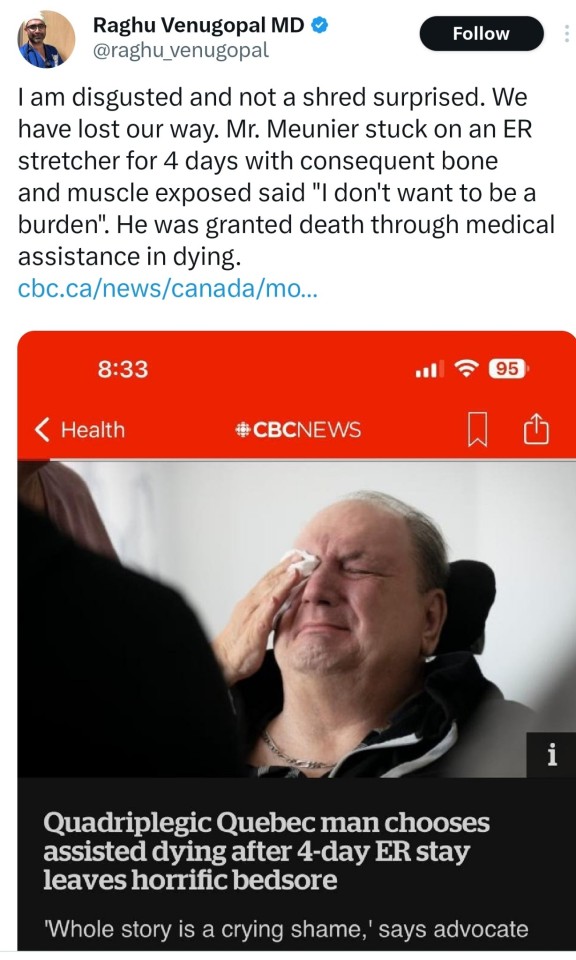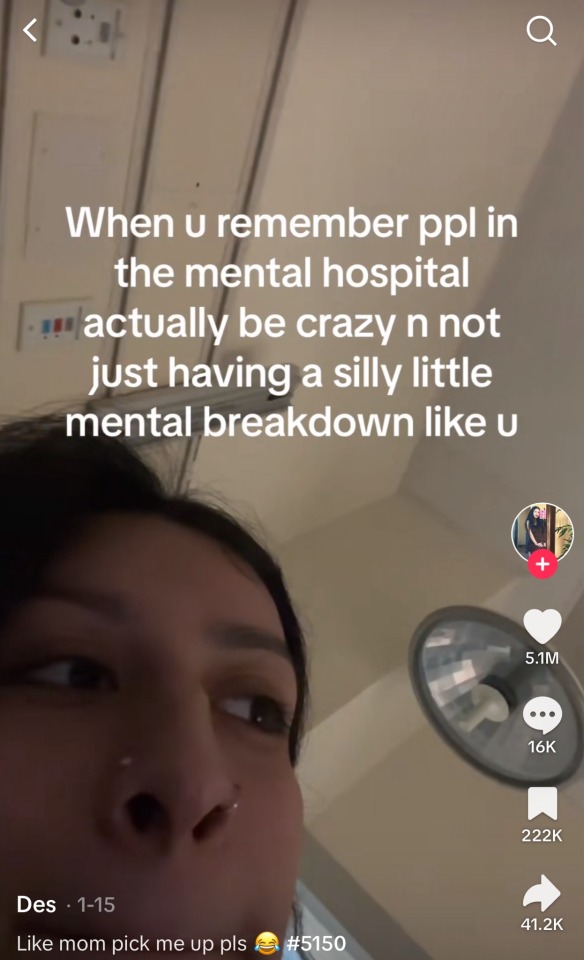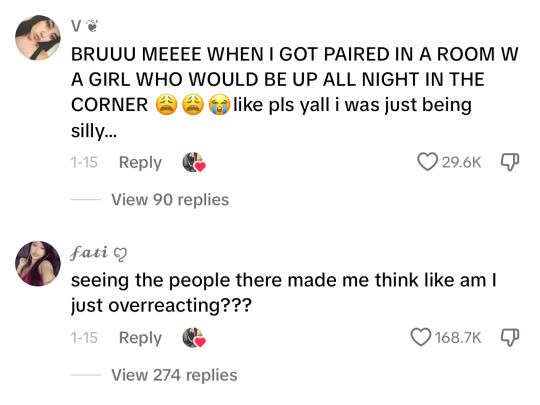Text
Still thinking about the person at my hospital who was in a wheelchair with truck nuts strapped to the back.
606 notes
·
View notes
Text
I've reached 35 responses! They're very interesting, but the sample size is still small, and I don't think it's at all representative of the Tumblr autism community. If I can't reach at least 100 responses, I don't think I'll be able to analyze Tumblr community views on support needs in depth. I'll still post descriptive statistics for the overall sample, but I won't have the statistical power to do anything else.
I'd really appreciate if everyone could help by taking the survey and reblogging this post to their followers!
As a reminder, the survey is meant to understand how people use support needs labels. For example, what makes someone low support needs and not moderate support needs? The survey also helps show what the community is like in general in terms of demographics and experiences!
A summary of the current survey results are under the Read More. Again, especially if a community that you're in is under-represented, please help by spreading the survey link! I'd especially love to hear from more people AMAB, racial/ethnic minorities, people who are not yet diagnosed or were diagnosed as adults, and higher support needs individuals!
Age: Most participants are young; 60% are under age 25%, and 20% are under 18.
Gender: Over half of the sample is AFAB nonbinary, almost 1/3 is trans men, and almost all of the remainder (14%) is cis women. Only 2 people who are AMAB have taken the survey.
Race/Ethnicity: Non-Hispanic White people are very over-represented, making up 82% of the sample.
Diagnosis: 57% are professionally diagnosed, 20% are informally or soft-diagnosed, and 14% are seeking a diagnosis. Only 9% are neither diagnosed nor seeking a diagnosis.
The most common diagnoses are ASD with no level (33%), level 1 ASD (25%), and "mild autism" (13%).
16% were diagnosed before age 8, 24% between ages 9 and 15, 32% between ages 16 and 18, 12% between ages 19 and 25, and 16% over age 25.
Autism Support Needs: The most common self-identified support needs label is "low-moderate" (43%), followed by low (23%) and moderate (14%). Most would benefit from but do not need weekly support (31%), only need accommodations and mental health support (17%), or rarely need any support (6%).
Autism Symptoms: On a severity scale of 0 (not applicable) to 3 (severe), the average is 1.7 overall, 1.8 socially, and 1.7 for restricted-repetitive behaviors. The most severe symptom is sensory issues (2.1), and the least severe are nonverbal communication and stimming (both 1.5).
83% are fully verbal, and 97% have no intellectual disability.
38% can mask well enough to seem "off" but not necessarily autistic. 21% can't mask well or for long.
Most experience shutdowns (94%), difficulties with interoception (80%), meltdowns (71%), alexithymia (71%), echolalia (69%), and autistic mutism (66%). Very few experience psychosis (14%) or catatonia (11%).
Self-Diagnosis: 20% think it's always fine to self-diagnose autism, 29% think it's almost always fine, 31% think it's only okay if an assessment is inaccessible, 71% think it needs to be done carefully, and 11% think it's okay to suspect but not self-diagnose.
15% think it's always fine to self-diagnose autism DSM-5 levels (including if the person has been told they don't have autism), 15% think it's fine as long as autism hasn't been ruled out, 21% think it's almost always fine, 18% think it's only okay if an assessment is inaccessible, 36% think it needs to be done carefully, and 36% think it's okay to suspect but not self-diagnose.
26% think it's always fine to self-diagnose autism support needs labels (including if the person has been told they don't have autism), 29% think it's fine as long as autism hasn't been ruled out, 37% think it's almost always fine, 29% think it's only okay if an assessment is inaccessible, 43% think it needs to be done carefully, and 6% think it's okay to suspect but not self-diagnose.
Disability: 71% feel disabled by autism, 17% feel disabled by another condition but not autism, and 11% are unsure.
Comorbidities: The most common mental health comorbidities are anxiety (68%), ADHD (62%), and depression (56%).
The least common mental health disorders are schizophrenia spectrum disorders (0%), bipolar disorders (3%), tic disorders (6%), substance use disorders (6%), personality disorder (9%), and OCD (9%).
The most common physical health comorbidities are gastrointestinal issues (29%), connective tissue disorders (29%), autoimmune disorders (24%), neurological disorders or injuries (24%), and hearing/vision loss (24%). All others are below 20%.
Overall Support Needs: When considering comorbidities, the most common self-identified support needs label is moderate (37%), followed by low-moderate (31%) and low (17%).
298 notes
·
View notes
Text
Important: with the recent stabbings and deaths at Bondi Junction, I just want to remind everyone that schizophrenics are not dangerous people.
There is always more going on and I do not want to see schizophrenics stigmatised more than they already are because of that one detail.
#my stomach dropped as soon as I saw the reporting that he had a mental health condition#because everyone loves to blame people with “scary” mental health diagnoses for violence
176 notes
·
View notes
Text
Like I just don't think the way towards effective disability solidarity is doubling down on how all disabilities are basically the same. I think what we need to do to get anywhere is take a step back and listen when someone who is disabled in a different way than we are has different experiences and needs. Because while ALL disabilities are real, valid and serious, there are differences in lived experiences worth acknowledging and exploring between, let's say, being a wheelchair user and being autistic and being psychotic. There are even differences worth noting between being a low support needs autistic person and a high support needs autistic person. We're not all the same. And our solidarity should not depend on claiming that we are
1K notes
·
View notes
Note
Are you an advocate for censorship?
is this because i said not to use the r slur
23K notes
·
View notes
Text
here’s to disabled people who can’t speak/struggle to speak. wether it be a physical thing, mental thing, or both, it’s okay. you’re not any less a person for it.
2K notes
·
View notes
Text
yes, there are that many really disabled people on the internet actually
When I was less sick I used to think, "It seems like such a large portion of people on the internet are disabled, it can't possibly be that large of a percentage of the population" and then let my ableism demons tell me it was because they were faking (the same ones that told me I was faking, until I made myself really ill.)
But now that I'm sicker and wiser I realize I was logically just wrong because
The internet is disabled people's lifeline. There are more disabled people on the internet because OF COURSE. People who aren't disabled can be less chronically online because they don't have to be. This is textbook selection bias!
But actually also I was almost right, because there are way more disabled people in society than you would think! They're just systematically hidden and excluded from public spaces for abled peoples' convenience! 🙃
Anyway maybe this will help you understand and/or explain to abled friends and family.
4K notes
·
View notes
Text
Reminder from someone with actual literal brain damage from a brain injury to stop fucking using "brain damage" and "brain injuries" as a means of describing someone whose opinions you don't like or deem as stupid.
It's ableist and offensive as fuck, and for some reason a lot of leftist people think it's okay to use. I've seen posts replying to right wing racists calling them "brain damaged if you believe this" and "do you have a brain injury? do you not understand X?". Just now I saw a beautiful post about fat people throughout history that was absolutely ruined by opening with "How do we break it to boomers with actual brain damage and nostalgic brainrot, and the 'tradwife' thirsting Andrew Tate fans..." before continuing to say that fat people existed throughout history.
Brain damage does not make you racist. A brain injury doesn't make you stupid, or fatphobic, or unaware of history and politics. Stop fucking using my disability as a catch all to describe people you think are shitty. Y'all use it like it's a replacement for how people used to use the R-slur, which shows you learned absolutely nothing about why the R-slur was wrong to use and decided to throw in other disabilities instead. Fuck off and stop doing it.
(And don't do it with other disabilities either, because I know y'all do.)
I know a lot of people with brain injuries. They're smart, and funny, and compassionate. They learn about the world and care about social issues and wish they could go to protests if their disability won't allow them to. Are there right wing people with brain injuries? Sure, absolutely. But they are not right wing because they have a brain injury, and using any disability as an insult is still fucking ableist.
Tldr - stop using brain damage and brain injury as an insult. It's ableist and incredibly offensive.
Love, your local brain injured/brain damaged pal
10K notes
·
View notes
Text
Ok guys.
If a parent says their child has profound or severe autism, and the parent is nice and supportive and definitely not a bad or shitty parent….
Then them saying profound or severe isn’t dehumanizing, they simply state the diagnosis.
Then it simply means that you have to pay attention to certain things when interacting with their child because otherwise the social interaction will inevitably fail.
Profound or severe autism is a bad word if you yourself think that it’s bad to be profoundly or severely autistic. “I think it’s dehumanizing to say they have profound autism” - it’s their fucking diagnosis, just because words have negative connotations because of certain people doesn’t mean it’s generally bad to say it. It’s the same like people who say special needs because they think disabled is a bad word. Do you think we are “a bad thing”? Because if you don’t, you make it sound like it.
377 notes
·
View notes
Text
Severe autism is a diagnosis. It is diagnosed through additional severity tests after the normal autism diagnosis.
It is not the same as profound autism, but it is its own category.
It is valid to say that the symptoms are severe, but that doesn't make your autism severe. Or the autism of your sibling. Or your cousin.
Severe autism is tested. There are tests for that.
It is a real thing.
81 notes
·
View notes
Text
Saw a post and it really got me thinking.
The post was talking about why don’t lower support needs, higher masking individuals even believe that higher support needs, low masking, “severely autistic” people, exist. And that got me really thinking. Because, I do think they know we exist. I just don’t think they want too.
I don’t think they want to know we exist. They know we exist, but keep us on the back burner. They live in ignorance bliss of us. I have what some people would think of as severe autism. Im nonverbal (although nonverbal later in life. But outside people don’t care about that. They see nonverbal as nonverbal), I’m intellectually disabled, need help in everyday life, etc. but I’m in the middle. I’m moderate support needs. To me, I’m not severely autistic. But to society, I am considered and seen as severely autistic because society doesn’t have the understanding of moderate autism yet. They don’t understand it. And I’ve seen more times than I can count that severe autism doesn’t exist. Not because they don’t believe in severe autism the label itself because it’s “harmful” but because they don’t believe that it’s just caused by autism. They often believe that’s it’s caused by comorbidities. Like ID, or cerebral palsy, or apraxia/dyspraxia, or mobility issues, or genetic conditions, and so on. Although none of this is bad.
They believe that autism itself can’t create severe autism. Which…isn’t true. Before, it was believed that severe autism was the only type of autism. That it was the only type that existed and if you weren’t severely autistic then you weren’t autistic. Then more research happened, then social media happened, and now..white, lower support needs, high masking, late diagnosed individuals are the majority of what’s being centered. And, that isn’t bad. We need awareness of all autism. But when one type of autism gets centered, it becomes a problem. It becomes the new norm. It becomes what everyone expects out of autism now. Which, isn’t true. Autism all of all types and traits exists. Autism of all support needs exists.
When people say severe autism doesn’t exist, they’re ignoring and saying that a BIG percentage of autistic people don’t exist. They’re saying that we aren’t real. That we aren’t on the internet, or in the communities they live in, or in their schools, or whatever. We’re everywhere. Severe autism is still a thing. It isn’t a misdiagnosis. It isn’t from comorbities, although if someone’s autism is more severe from comorbidities then that isn’t bad.
I think a lot of people need to be more aware of severe autism. And not just severe autism like me or my mutuals, or the people you see here on tumblr. But the ones with even MORE severe autism. The ones who live in group homes, residentials, institutions, and so on. The ones who aren’t on the internet. The ones who aren’t here blogging about their lives. We need to be aware of them too. We need to believe they exist, and believe that their autism is real.
Don’t erase severe or profound autism.
236 notes
·
View notes
Text

https://www.cbc.ca/news/canada/montreal/assisted-death-quadriplegic-quebec-man-er-bed-sore-1.7171209
61 notes
·
View notes
Text
don’t exactly love going around define & police what is & isn’t high needs autism but some you all “this character/shows/etc is high needs autism representation” and show is people who can live independently/ semi independently & go to community without supervision & bunch examples can only think of iADL examples & not autism inherent symptoms bc no brain right now
like can we collectively acknowledge be visibly awkward & “weird” speech pattern & low/cant mask… not exclusive to high needs autism. n not all of what high needs autism mean. right. like can we
we know low support & level 1 autistics can struggle w masking… right
141 notes
·
View notes
Text
want see… manual wheelchair & users with high back rests, with headrest, with chest strap & lateral support, tilt in space, stroller handles, 40 50+ lb “ultralight” chairs because all modification…. more of us please where you all
88 notes
·
View notes
Text
look I get that it's often important for a person to look for reassurance on whether they are considered disabled or not, I'm not gonna get into that one. What I am going to say is that people need to stop asking "can I say the c slur?". Not how slur reclamation works anyway, and also? Why are you so eager to know if you can say it or not? It's one thing to reclaim it in power, but asking around to get permission from a cpunk blogger to use a slur is unnerving. Stop asking for permission to say slurs and start looking for ways you can participate in and uplift the community they apply to, even if you're a part of it.
478 notes
·
View notes
Text



i’m not posting the actual tiktok because it involves another patient being recorded without their knowledge and clearly not doing okay but y’all we were so close to mental illness being destigmatized. we were so close but now the general public sees mental illness as two separate groups - the quirky relatable depression and anxiety, and the weird cringy scary schizo-spectrum disorders, ocd, personality disorders, and so on. #mentalhealthmatters as long as it’s not one of those weird scary illnesses
14K notes
·
View notes